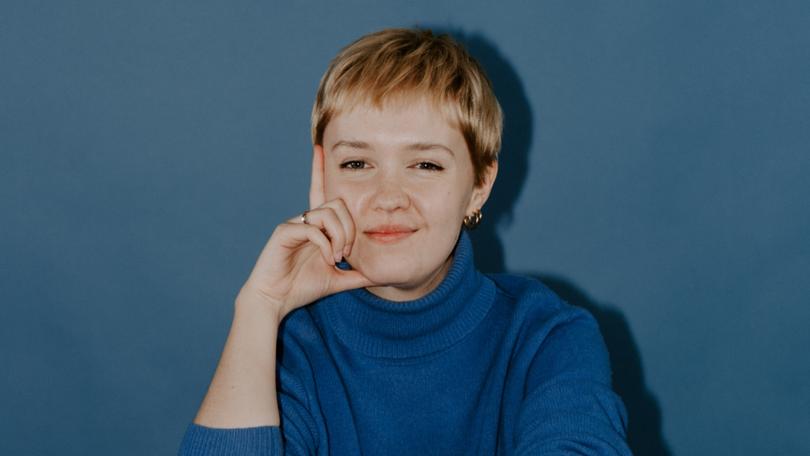Mary McGillivray: The anti-social media influencer bringing art to the masses
You probably have a strong impression of what a social media influencer is, but the definition has evolved.

If you’re asked to think of a social media influencer, the archetype that probably springs to mind is a young person gushing over their make-up haul. They will be effusively unboxing their products, showing you how to apply sparkly eyeshadow.
Or maybe it’s someone posing from an over-the-water bungalow at the Maldives, or they’re doing yoga on the beach, a clear sky behind them on the horizon.
Sign up to The Nightly's newsletters.
Get the first look at the digital newspaper, curated daily stories and breaking headlines delivered to your inbox.
By continuing you agree to our Terms and Privacy Policy.In the years since social media birthed the influencer, a different type of online personality has emerged, ones who are interested in ideas and stories, not consumer products or unattainable lifestyles.
Melbourne woman Mary McGillivray put herself online when the covid pandemic delayed her plans to start her master’s in art history at Cambridge University. Stuck at home, she began making videos about art and visual culture. The timing was perfect - it coincided with when TikTok took off as throngs of content makers and bored audiences rushed online in search of new experiences when their worlds had shrunk to their postcode.
She made videos about Renaissance art, talking about Michelangelo or Giotto’s frescoes. When borders reopened, she took her fans on tours of Florence and Paris. Today, she has 449,000 followers on TikTok, 191,000 on Instagram and 10,000 on YouTube.
McGillivray will this weekend appear on a panel at Sydney Opera House’s All About Women festival, discussing whether influencers are the new public intellectuals. And before you roll at your eyes at the suggestion that “vapid” social media influencers can occupy a space once reserved for crusty old men, hold your judgement for the moment.
McGillivray’s videos mixing “high” and “low” art is anything but vapid.
She used her knowledge of perspective in art to explain that a Eurovision winner was not taking drugs, despite what a “damning” photo might suggest. And connected Harry Potter to the famous Lewis chess pieces that date back to the 12th century.
McGillivray said social media can help plug a pretty big knowledge gap.
“Art history education, and history education more broadly, in Australia is abysmal,” she told The Nightly. “It’s not taught well at schools, either at primary or high school level, and you have to decide to do a degree at university in order to get any quality art history or history education.
“It’s a huge challenge, for young people and for the future of our understanding of our nation and ourselves and our place in it.”
She has made videos to aid school curriculums but said that a young person who happens upon her work online, it’s a different context. “If they accidentally stumble across it on their TikTok algorithm, there’s a sense of agency. They won’t feel as if it’s been shoved down their throats by a teacher, and find out they had a passion for something they didn’t realised they had.”
McGillivray, who eventually completed that Cambridge masters degree and is now studying for a PhD in art history in Melbourne, said some segments of academia can be elitist but they should view online platforms as an opportunity to share the thing they love.
“You can write a hundred-thousand-word thesis and maybe four people will read it, which is very depressing if you think about how much effort people put into their amazing research.
“But if academics go the extra mile to translate their brilliant work into something that is more accessible and digestible, then there’s the potential for that thesis to actually reach thousands or hundreds of thousands of people in a different format. Academic writing is so impenetrable.”
When it’s working to its utopian ideal, social media can be a democratising force where storytellers and personalities could bypass traditional gatekeepers (media, casting directors, modelling agencies) to reach an audience.
And when those gatekeepers are making decisions either in media or education to de-prioritise and de-fund the arts and arts content, influencers like McGillivray can step in. Although she admits that the lack of transparency of tech giants’ algorithms is frustrating. Her TikTok account was nearly suspended because she had too many “strikes” for content warnings over nudity in the artworks she has showcased.
“It’s kind of insane because they’re paintings that are shown in public galleries, that we show children because they’re art or considered important but they’re being flagged as inappropriate for social media. But at the same time, there is a lot of undesirable and horrific, abusive content that gets through these barriers,” she lamented.
Still, McGillivray’s position as a social media influencer is not what she had expected five years earlier, and even though what that label can mean has evolved, she’s not always comfortable with it.
“I don’t feel like an influencer, I’m not very good at doing influencer things,” she said. “Sometimes I am invited to media events, not very glamorous ones but with red carpets, and I avoid being photographed.
“I’m not confident in that way but I guess I am an influencer in one very specific capacity, which is that people want to know what I think about art stuff.”
All About Women is on at the Sydney Opera House on Sunday, March 11

